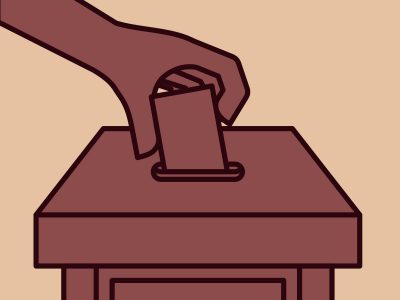Boston City Councilors Julia Mejia and Kenzie Bok are sponsoring a home rule petition to lower the local voting age to 16.
If passed, 16- and 17-year-old city residents would have the right to vote for mayoral candidates and ballot questions in municipal elections. The proposal is not unprecedented — numerous other Massachusetts cities and towns have previously pushed to lower their voting age.
Brookline town meeting members voted to lower the voting age for local elections to 16 in 2019, and the Cambridge City Council approved a similar measure — that has yet to be implemented and approved by the Massachusetts Legislature — in 2020. In March, Boston University alumna and Rep. Ayanna Pressley, D-Mass., proposed an amendment to lower the voting age from 18 to 16 for federal elections, but it wasn’t passed.
At ages 16 and 17, teenagers are caught between grownups and children. In some parts of society, they’re treated as adults — required to pay taxes, able to test for their driver’s license and tried as adults in court. In others, they’re considered too immature and unable to make their own decisions, which is a contradictory sentiment.
The measure to grant these teenagers with the right to vote will allow roughly 2% of Boston’s population — who are directly impacted by city policies and leadership — to have a voice and be included in these discussions.
It is crucial to pass this measure not only for their independent political identities, but also for those who want to represent family who may be unable to vote if they are non-citizens or had their voting rights stripped.
In addition, opening up local elections to the youth will incentivize them to be more engaged in what are typically the lowest-voter-turnout events, compared to state and federal elections and primaries.
Gaining new rights is always an exciting endeavor that will likely be celebrated. And if they are only able to vote in the local elections, chances are it will put city politics on their radars and pique their interests.

Instilling voting habits and a sense of civic engagement from an early age is vitally important for teenagers to stay active voters as they grow up. But often, voting and doing it right can be intimidating, especially without guidance. Being exposed to localized issues, then, may be less overwhelming than the measures and questions on state and federal ballots.
Though spotlighting local elections will help ease these high-schoolers into learning about politics, we must be careful not to trivialize municipal-level voting. Especially in Boston, with the mayoral elections upcoming, city elections cannot be framed as the training stage before partaking in “real” elections. Voting at every level of government matters.
The lowered voting age may also come with added complications. Some 16-year-olds may still be immature, characterized by impulsivity and risk-taking behavior. Though they are able to reason, their emotional maturity has not fully developed at this time, which means they may be easily swayed by their peers to vote one way or another — rather than basing the decision on their own opinions and research.
However, there are equally as many passionate, mature 16-year-olds to balance others out. In addition, there’s no telling whether those who are disinterested will even take advantage of voting. We shouldn’t discount the politically active youth solely because of the possibility of irresponsible ones.
If voter resources and political information were more accessible to the public, it would make a huge difference in properly educating and dissuading teens from misinformation — be it through social media or the schoolyard grapevine. Furthermore, there should be a greater emphasis on required government, voting etiquette and civic education classes in Boston Public Schools around sophomore year, when students become eligible to vote.
To give teenagers the right to vote also means we must shoulder the responsibility of fully preparing them for becoming politically engaged and equipping them with unbiased public education, parental guidance and governmental resources. This way, they can make well-informed choices on candidates and policies.
Boston can and should implement the new voting age limits, but we must also follow that with curriculum changes and publicly available information each election.











































































































